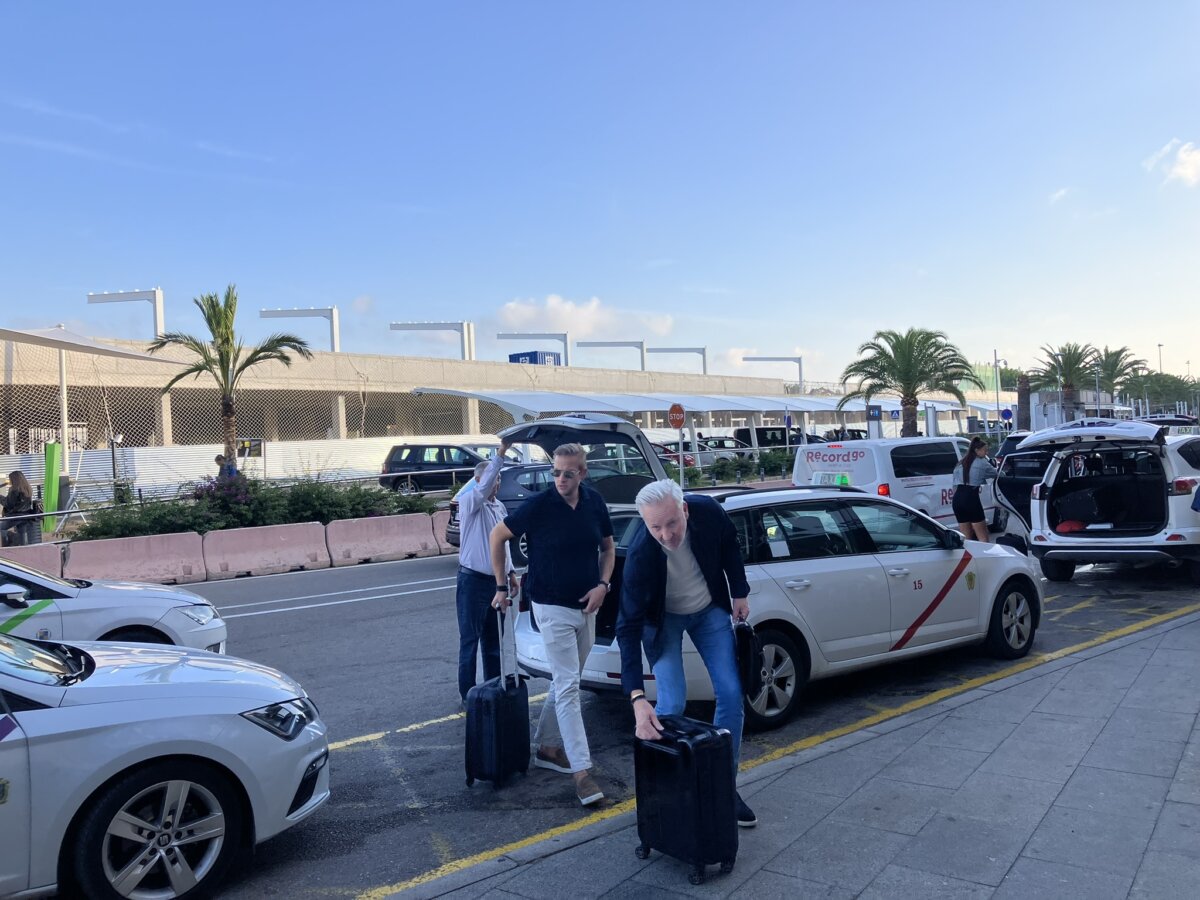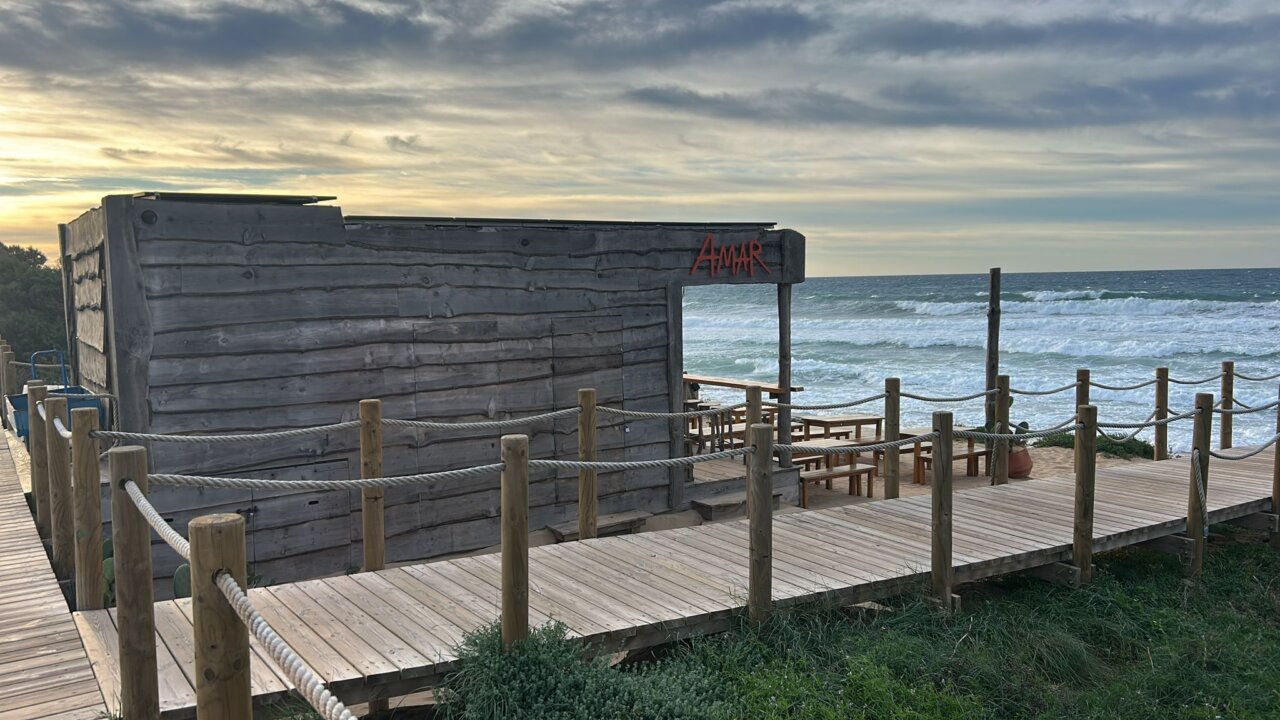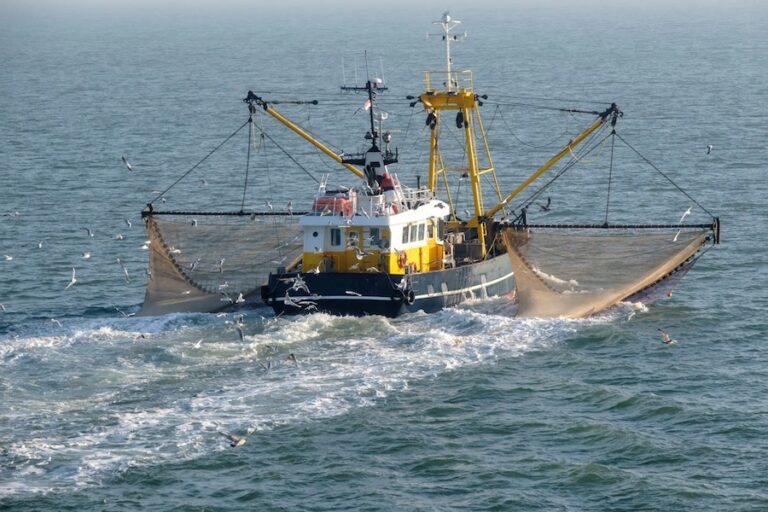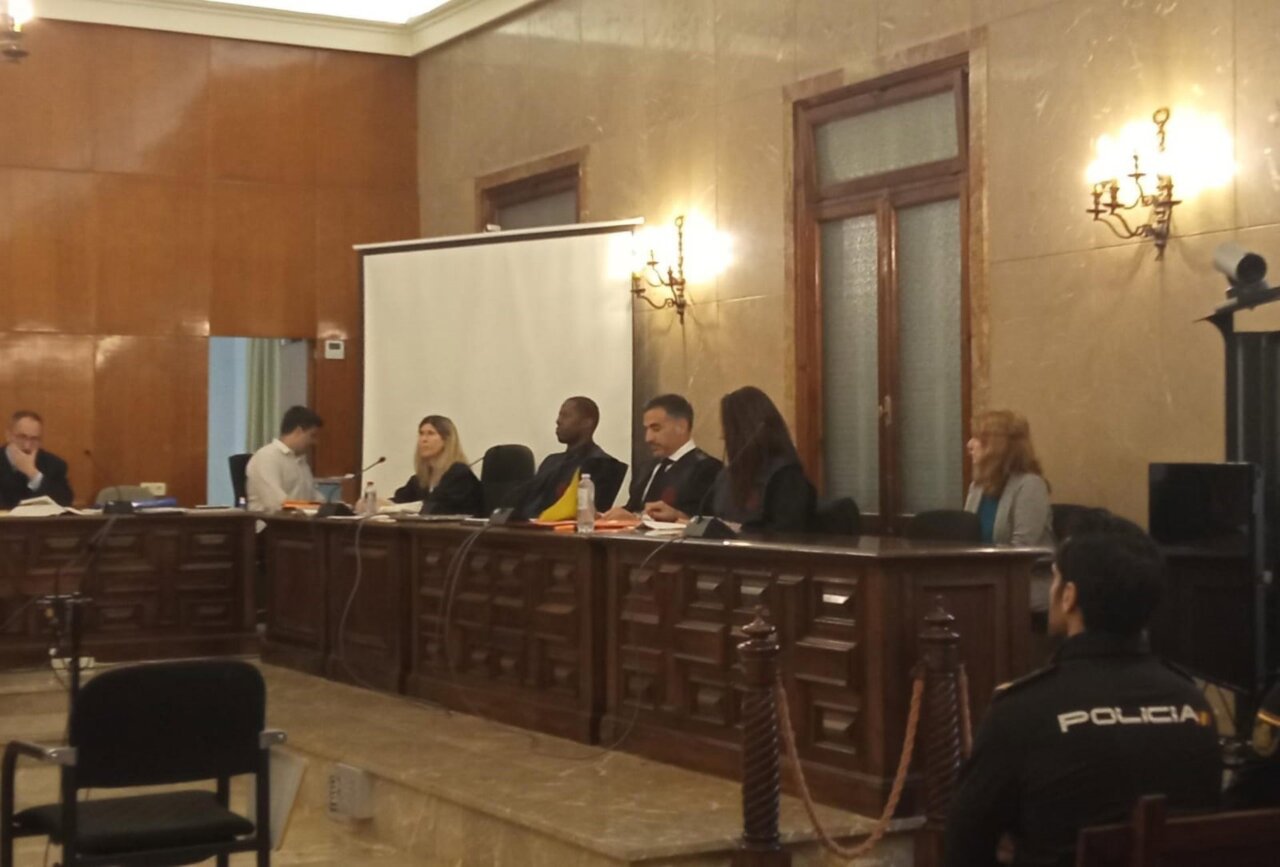The Consell de Ibiza has achieved record figures in its fight against illegal activity in the transport sector, driven by the Plan de Intrusismo, a comprehensive strategy funded with 4 million euros from the Sustainable Tourism Tax (ITS) for the Consell. The main objective of this plan has been to protect the safety of users, ensure fair competition and defend the legal transport sector on the island.
More than 600,000 € in penalties
According to the report, the intensification of the inspection has had a strong financial impact, showing that illegal transport networks are being hit where it hurts the most: in their pockets. The collection of transport sanctions has experienced a massive increase of 266%.
While in 2019 the revenue from fines amounted to 163,881 € and in 2024 to 433,748 €, the figure reached 601,031 € until October 31, 2025.
In addition to direct collection, the surveillance effort prevented a large amount of money from flowing into the black market. According to the Inspection Department’s estimate, €2,496,582 that would have gone into illegal transport was prevented.
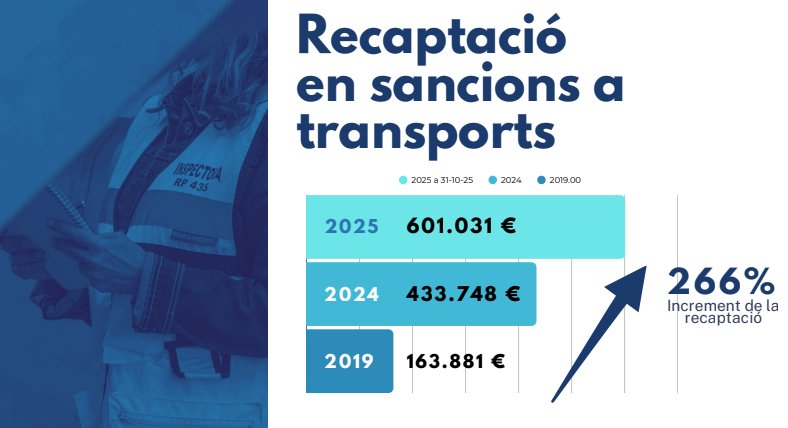
Record number of fines and vehicles immobilized
The surveillance operation, which included the hiring of 6 new inspectors and 4 transport agents, made it possible to manage 588 complaint bulletins until October 31, 2025. This figure is higher than that recorded for the whole of 2024 (412) and 2019 (373).
This was also reflected in the number of actions and files:
- A total of 619 disciplinary proceedings were opened.
- Of these, 405 are pending resolution and 159 have already made voluntary payment.
- A total of 161 vehicles were immobilized up to October 2025. This figure is almost double that of the same period in 2024 (92), representing a 75% increase in immobilized vehicles.
-
A ‘pirate cab’ in Formentera falls: exemplary sanction for offering illegal trips to tourists
The airport and leisure areas, focal points of intervention
The strategy focused especially on sensitive points. The most outstanding device was the one implemented at Ibiza Airport, where the Consell’s inspectors maintained a continuous presence for 14 hours a day.
As a result, a reduction of more than 95% in the presence of pirate drivers was achieved . The protocol, agreed with AENA, had inspectors identifying the illegal carriers, then AENA’s private security would expel them from the terminal, and the Guardia Civil would intervene in case of disobedience or recidivism.
In addition, the plan was expanded to address new modalities of intrusiveness, such as illegal vehicle rental, and to carry out informative and surveillance actions in WhatsApp groups used to coordinate irregular activities, as well as in spaces with a large presence of visitors and leisure areas. For these tasks, the first investment was made to promote specific control actions, including the hiring of detectives.
Benefits for legal transportation
Collaboration between administrations was key to increasing the effectiveness and safety of the interventions. The robust system was based on permanent coordination, with a total of 583 combined actions:
- Inspection of the Consell: 370 actions.
- Local Police (Ibiza, Sant Antoni, Sant Josep and Santa Eulària): 171 actions.
- Civil Guard: 42 actions.
The measures implemented, according to the report, had a positive impact on public transport and cab service.
Continue reading:
-
Another ‘pirate cab’ caught in Ibiza: arrested after running a red light in Avenida de la Paz
-
Pirate cab driver flees from a checkpoint in Ibiza but a detail gives him away: “We have him located”.
-
15,000 euros fine for a “Pirate Taxi” intercepted at Ibiza Airport
-
Pirate cab queen operating out of Ibiza airport caught and denounced

